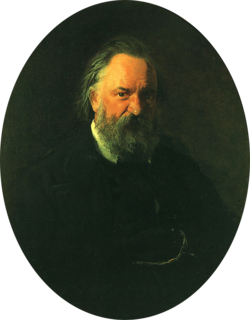A Quote by Marie-Luise Gothein
Indian monks were the first to choose the garden as the proper setting for their lives, which were devoted to the
contemplation of the divine; but with a prophetic eye we may see that the garden will often be dedicated in a
like manner: at a later time Greek philosophers, and monks in early Christian days, will retire into their
gardens for united, yet silent, contemplation.
Related Quotes
The great and secret message of the experiential mystics the world over is that, with the eye of contemplation, Spirit can be seen. With the eye of contemplation, the great Within radiantly unfolds. And in all cases, the eye with which you see God is the same eye with which God sees you: the eye of contemplation.
Most people, early in November, take last looks at their gardens, are are then prepared to ignore them until the spring. I am quite sure that a garden doesn't like to be ignored like this. It doesn't like to be covered in dust sheets, as though it were an old room which you had shut up during the winter. Especially since a garden knows how gay and delightful it can be, even in the very frozen heart of the winter, if you only give it a chance.
Once in those very early days my brother brought into the nursery the lid of a biscuit tin which he had covered with moss and garnished with twigs and flowers so as to make it a toy garden or a toy forest. That was the first beauty I ever knew. What the real garden had failed to do, the toy garden did. It made me aware of nature-not, indeed, as a storehouse of forms and colors but as something cool, dewy, fresh, exuberant....As long as I live my imagination of Paradise will retain something of my brother's toy garden.
But this is that which will dignify and exalt knowledge: if contemplation and action be more nearly and straitly conjoined and united together than they have been: a conjunction like unto that of the highest planets, Saturn, the planet of rest and contemplation, and Jupiter, the planet of civil society and action.
Traditionally, women didn't have much a role in Buddhism. The books were all written by monks, for other monks. So the general view of the feminine was rather misogynistic, with women playing the role of the forbidden other, waiting to pounce on innocent little monks! In that society, it was hard for women to become educated and get the deeper teachings and really become accomplished.
But in the garden the sun still shone. The innumerable bees hummed. The scent of thyme hung on the air. But only the Natterjack was there to breathe the fragrant essence of it. He and the garden were waiting. They were waiting for more children. They didn't care how long they waited. They had all the time in the world. -The Time Garden, Edward Eager
If, I can someday see M. Claude Monet's garden, I feel sure that I shall see something that is not so much a garden of flowers as of colours and tones, less an old-fashioned flower garden than a colour garden, so to speak, one that achieves an effect not entirely nature's, because it was planted so that only the flowers with matching colours will bloom at the same time, harmonized in an infinite stretch of blue or pink.



































